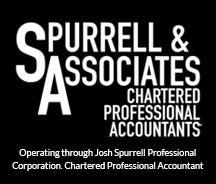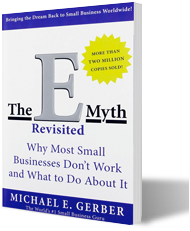Edmonton Bookkeeping | Tax Payable Accounts
It is extremely important that entrepreneurs are reviewing their financial statements often to ensure their accuracy according to Edmonton bookkeeping. The author of 6 business books including good to great, Jim Collins had this to say about reviewing information, ìthoughtless reliance on technology is a liabilityî. Since entrepreneurs make decisions in their business based on what appears in their financial statements, making those decisions without first verifying the accuracy of the financial statements can end up with the entrepreneur taking a decision that could negatively impact their business. Often some of the reasons why financial statements may end up being incorrect is due to some default setting in their accounting software which causes tax entries to be posted into the wrong account. By fixing these errors, entrepreneurs can more accurately count on their financial statements when there needed in order to make better financial decisions.
One of those areas where a default setting on and accounting software can cause problems in the financial statement is the way some software accounts for tax payments some accounting software that business owners use says Edmonton bookkeeping can default into the accounts payable section of the financial statement. Many business owners might not catch this because they think taxes should be accounts payable, but this is not correct. All taxes that are paid, have their own separate tax payable section.
Another area that accounting software defaulting can cause problems says Edmonton bookkeeping, is when tax payments are accidentally posted to an expense account. Again, business owners may see this as no problem, because taxes are inexpensive their business. Unfortunately, this is not accurate on financial statements simply because the tax expenses are indicated in its own account. As an accountant calculates the amount of taxes that a business owner owes, they will make that entry once a year, at the business’s fiscal year-end into the tax expense account. If an entrepreneur has been allowing their accounting software to post-tax amounts to an expense account, this will cause all of the taxes that are paid in the business to be doubly entered, creating all sorts of errors throughout the rest of the financial statement.
Another area that entrepreneurs should understand that tax payables should not show up on according to Edmonton bookkeeping is the profit and loss statement of the business. It is extremely important that tax payables only gets posted to the tax payable accounts, and not show up on the profit and loss statement of the business.
When entrepreneurs are able to understand all the various ways that tax payments can be posted incorrectly, they will be much more ready to review their financial statements and watch for all of those various errors that may occur on their financial statements. By fixing those errors proactively, entrepreneurs can ensure the accuracy of interim financial statements so that if there ever becomes a time a business owner needs to review those financial statements in order to make a financial decision, the financial statements will already be accurate and ready for a business owner to use.
When entrepreneurs do not understand that all of the various taxes that they pay throughout the year get their own section in the financial statements that they receive from Edmonton bookkeeping, they may not know how to review those financial statements for errors. Since interim financial statements are more likely to have errors than the ones that accountants prepare at the fiscal year-end of the business, entrepreneurs should always be mindful that any time they get interim statements, they should do a quick review to watch if any errors exist, so that they can fix them.
It is extremely important for entrepreneurs to have accurate financial statements at all times in their business, on the chance that entrepreneurs need to make financial decisions in their business. By making financial decisions based on the actual finances of their business, can help entrepreneurs make decisions that can positively impact their business.
Business owners should understand the difference between tax payable accounts tax expense accounts so that they know what these accounts are in their reviewing their financial statements says Edmonton bookkeeping. A tax payable account is where all of the different taxes that a business owner pays throughout the year in their business will appear. Since entrepreneurs pay a lot of different taxes, there are a lot of different accounts to keep track of.
Edmonton bookkeeping says that the tax expense account is the place on the financial statement that shows entrepreneurs how much tax they owe throughout the entire year. Business owners should take note, however, that even though there making tax payments throughout the year, they do not actually get a tax bill until the end of their year, when their accountant is working on their corporate financial statements. Therefore, this account should be at a zero balance most of the time.
Another way that business owners can be aware of how taxes appear on their financial statement is that only in Alberta will they see a federal as well as provincial tax payable account. There is Canada revenue agency that takes care of the federal taxes, in Alberta finance that takes care of the provincial tax. This is not how taxes are done in other provinces in Canada, with entrepreneurs sending both provincial and federal taxes to Canada revenue agency, who then forwards the appropriate amount of provincial tax to the appropriate province. Edmonton bookkeeping says that business owners should be aware of this, especially if they are coming from being a business owner and another part of Canada.
By being aware of how the various taxes that they pay get indicated on their financial statements, business owners can review the financial statements looking for how it appears. If they see any tax payments that appear anywhere else than in the tax payable accounts, they can fix that error quickly, but ensure the overall accuracy of their interim financial statements.

